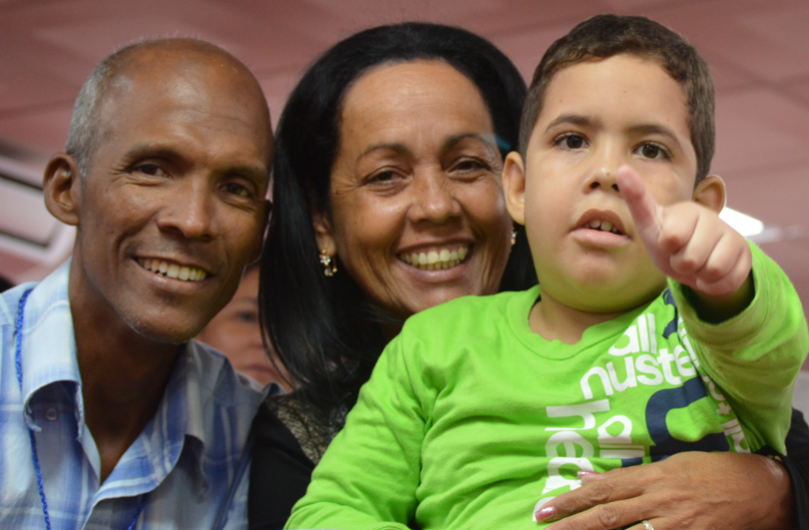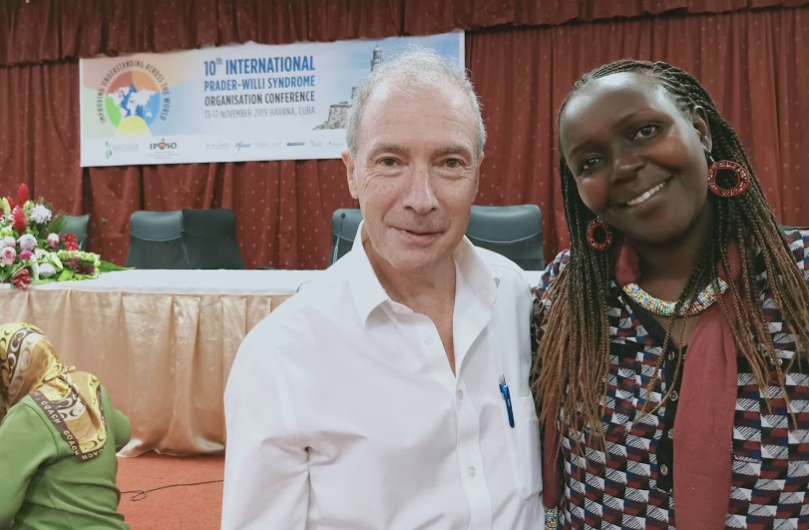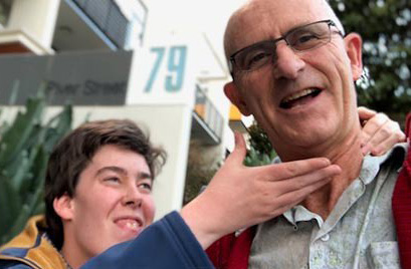IPWSO Caregivers’ ECHO® Videos
Materials from IPWSO Caregivers’ ECHO® are available here.
Norbert Hödebeck-Stuntebeck, PhD, PWS-InterNational, Germany
“The role of Diagnostic in supporting people with Prader-Willi Syndrome”
Presented at the IPWSO Caregivers’ ECHO on May 18, 2022. This presentation covers the role of diagnostics in supporting people with PWS to improve care and improve quality of life. It includes looking at the course of a crisis, the level of arousal and the level of cognitive competence, and the importance of knowing as much as possible about the symptoms of the syndrome and to look at the environment, the bio psychosocial background and diagnostic of the person with PWS.
The PDF of this PowerPoint is available here. To read the Q&A following the session please refer to the abridged abstract summary.
Brittni Kliment, Director of Program Marketing and Admissions, and Patrice Carroll, Director of PWS Services, Latham Centres, USA
“Education, Behavior Appreciation, and Positive Support Strategies”
Presented at the IPWSO Caregivers’ ECHO on April, 2022. This presentation lays out 3 reasons for some of the behavioral challenges that people with Prader-Willi syndrome can face; Executive Functioning Disorder, Sensory Processing Disorder, and Theory of Mind. The second part of the talk covers positive support strategies.
The PDF of this PowerPoint is available here. To read the Q&A following the session please refer to the abridged abstract summary.
During the group discussion a resource booklet called “Understanding the PWS Mindset and Development of Coping Skills” was discussed. Latham Centers have kindly shared this.
Susanne Blichfeldt M.D, Denmark
“Managing routine medical checks and other regular requirements in PWS”
Presented at the IPWSO Caregivers’ ECHO on March 23, 2022. Susanne’s presentation covers all of the important medical requirements for people with PWS and, given differences in the body in PWS, what you should be aware of in order to help keep the person safe and healthy. Reccomendations include advice on medical visits and what should be evaluated, visiting the dentist, vision checks, hearing tests and to support the individual in managing hygiene as needed.
The PDF of this PowerPoint is available here. To read the Q&A following the session please refer to the abridged abstract summary.
Lynn Garrick, Programme Director and Claire Poor-Harmon, Recruiting and Hiring Manager for AME Community Services, Minnesota, USA
“How to Attract and Retain PWS Caregivers”
Presented at the IPWSO Caregivers’ ECHO on February 16, 2022. In a field where staff turnover is high and salaries are low, how can you support staff to succeed and want to stay in a demanding high-stress role? In this session we discussed attracting new employees, creating a tight community and supporting and respecting staff, just as we support and respect individuals with PWS. We recognised the importance of PWS specific training, and also creating a pathway to leadership, and a vision for the future where there is certification and accreditation for direct support professionals (DSPs) so that it becomes a career that people can aspire to and take pride in.
The PDF of this PowerPoint is available here. To read the Q&A following the session please refer to the abridged abstract summary.
Larry Genstil, Psychologist, Genstil Institute of Human Behaviour, Israel
“Meaningful Employment for People with PWS”
Presented at the IPWSO Caregivers’ ECHO on January 19, 2022. This presentation covers the types of employment opportunities (based on the Israeli model) and factors which determine the availability of employment for people with PWS, such as age, level of cognition, food security, motivation to work, and what training and support is available. The discussion following the presentation compared sheltered workshops and vocational opportunities across the world, as well as delving deeper into some of the challenges to be overcome when supporting the person with PWS in employment.
The PDF of this PowerPoint is available here. To read the Q&A following the session please refer to the abridged abstract summary.
Georgina Loughnan, Prader-Willi Syndrome Clinic, Royal Prince Alfred Hospital, Sydney, Australia
“The Power of Exercise for People with PWS”
Presented at the IPWSO Caregivers’ ECHO on December 15, 2021. In this session we learned that when we think of the balance of calories in, calories out, for PWS the scales should be tipped to the exercise. Because people with PWS start with a deficit of decreased muscle tone and strength, they have increased body fat, and they don’t burn as many calories as fast. So, because of that they’re always at risk of osteoporosis and muscle wasting, and getting the comorbidities that go along with obesity. So exercise, from the very beginning, in childhood, is very important to develop, in order to meet those milestones.
The PDF of this PowerPoint is available here. To read the Q&A following the session please refer to the abridged abstract summary.
Dr Constanze Lämmer, Senior Physician, Children’s Hospital, St. Bernward Hospital, Hildesheim, Germany
“Nutrition in PWS”
Presented at the IPWSO Caregivers’ ECHO on November 17, 2021. In this session we learned about the special metabolic situation of individuals with PWS, the keystones of a healthy balanced diet, the role of insulin, psychological aspects of nutritional management and more. As a group we discussed to what extent individuals with PWS can be in control of their diet, can learn to be more independent around food, and learn to manage not only the diet but their emotions and behaviours.
The PDF of this PowerPoint is available here. To read the Q&A following the session please refer to the abridged abstract summary.
Norbert Hödebeck-Stuntebeck, Psychologist, Diakonische Stifung Wittekindshof, Germany
“Young and Clever: well educated people with PWS”
Presented at the IPWSO Caregivers’ ECHO on October 20, 2021. In this session we focused on the current generation of adolescents and young adults with PWS, who are very competent and know their rights, and problems that can arise within the care environment when they do not want to accept certain restrictions. We talked about some challenges for our traditional systems, and how to ensure sure families and people with PWS receive the right messages from an early age.
The PDF of this PowerPoint is available here. To read the Q&A following the session please refer to the abridged abstract summary.
For further reflections on this topic please read this blog post by François Besnier for Prader-Willi France.
Neil Gumley, Melbourne, Australia
“Transition for People with Prader-Willi Syndrome (PWS)”
Presented at the IPWSO Caregivers’ ECHO on September 22, 2021. In this session we focused on 3 areas of transition: Medical, Social and Environment. We shared examples of experience of transition, and strategies for managing transition to suit the individual with PWS.
The PDF of this PowerPoint is available here. To read the Q&A following the session please refer to the abridged abstract summary.
Damien Jones, Interaction Disability Services, Australia
“Prader-Willi Syndrome (PWS) and Restrictive Practice”
Presented at the IPWSO Caregivers’ ECHO on July 21, 2021. In this session we discussed the convention on the rights of persons with disabilities, the right to fully participate and self-determination, negative rights versus positive rights, and informal restrictive practices. We shared examples of restrictive practices that we use and spoke of the need for frameworks around restrictions.
The PDF of this PowerPoint is available here To read the Q&A following the session please refer to the abridged abstract summary.
Larry Genstil, PhD, Psychologist, Israel
“Managing Behavioural Issues of the Child with Prader-Willi Syndrome in School”
Presented at the IPWSO Caregivers’ ECHO on June 23rd, 2021. In this session we gained an understanding of social skills and how children with PWS learn differently than other children, role modelling with behaviour rehearsals for specific situations, and reinforcing positive behaviours.
The PDF of this PowerPoint is available here. To read the Q&A following the session please refer to the abridged abstract summary.
Norbert Hödebeck-Stuntebeck, IPWSO PPCB Chair, Psychologist, Diakonische Stifung Wittekindshof, Germany
“Basic philosophy of taking care of people with PWS”
Presented at the IPWSO Caregivers’ ECHO on May 12th, 2021. In this session we considered the differences of the situations for people with PWS in countries all over the world; the individuality of each person with PWS and as a consequence, the need of individualized support; and developing the competencies of self-control and independence.
The PDF of this PowerPoint is available here. To read the Q&A following the session please refer to the abridged abstract summary.
Copyright and other intellectual property rights in the speakers’ papers and presentations remains the sole property of each speaker and IPWSO has the right to use and broadcast such papers and presentations under licence. Copyright in the recording of the ECHO® session remains the property of IPWSO. No participant or any other person has the right to reproduce the recording, or any paper or presentation, in whole or in part, without the written consent of IPWSO.
The information contained in the multimedia content (video content) posted, represents the views and opinions of the original creators, and whilst IPWSO requests presenters to use content that is evidence-based and peer reviewed, the video content does not necessarily represent the views of IPWSO. The mere appearance of video content on this site does not constitute an endorsement by IPWSO or its affiliates of such content. The content has been made available for informational and educational purposes only. The content is not intended to be a substitute for professional medical advice, diagnosis, or treatment. IPWSO hereby disclaims any and all liability to any party for any direct, indirect, implied, punitive, special, incidental, or other consequential damages arising directly or indirectly from any use of the video content, which is provided as is, and without warranties.
About Project ECHO®
IPWSO Mental Health ECHO® Programme
Past ECHO® Programmes
IPWSO & Project ECHO® FAQs
Terms, privacy notices and disclaimers
Video Presentations
IPWSO Leadership ECHO® Videos
IPWSO Health ECHO® Videos
IPWSO SPW Latino América ECHO® Videos
IPWSO Caregivers’ ECHO® Videos
IPWSO Mental Health ECHO® Videos
The IPWSO Academy
Peer Reviewed Articles
< Back to Project ECHO®
International Community
IPWSO was established so that PWS associations, families, clinicians and caregivers around the world could exchange information and support and have a united global voice under one umbrella.
Information for Medical Professionals
The latest medical and scientific research and information, plus guides into common medical issues affecting people with PWS.



